- Home
- Muriel Spark
The Only Problem Page 2
The Only Problem Read online
Page 2
But still Harvey didn’t reply.
That was how Edward came to be on this errand to Harvey on her behalf. Incidentally, Edward also hoped for a loan. He was short of money till he got paid under his contract with the film people.
Edward used to confide in Harvey, and he in Edward, during their student life together. Harvey had never, to Edward’s knowledge, broken any of these confidences in the sense of revealing them to other people; but he had a way of playing them back to Edward at inopportune moments; it was disconcerting, it made Edward uncomfortable, especially as Harvey chose to remind him of things he had said which he would rather have forgotten. Harvey seemed especially to choose the negative remarks he made all those years ago, ten, twelve, years ago, such as when he had said something unfavourable about Ruth, something that sounded witty, perhaps, at the time, but which he probably didn’t mean. Scarcely ever did Harvey remind him of the praise he devoted in sincere abundance to others, Ruth included. So many sweet things seemed to have spilled out of his ears as soon as they entered them; so many of the sour and the sharp, the unripe and frivolously carping observations he made, Harvey had saved up in his memory-bank at compound interest; it seemed to Edward that he capitalised on these past confidences at a time when they were likely to have the most deflating effect on him; he called this a breach of confidence in a very special sense. Harvey would deny this, of course; he would claim that he had a clear memory, that his reminders were salutary, that Edward was inclined to fool himself, and that the uncomfortable truths of the past were always happier in their outcome than convenient illusions.
And undoubtedly Harvey was often right. That he had a cold side was no doubt a personal matter. In Edward’s view it wasn’t incompatible with Harvey’s extremely good mind and his occasional flashes of generosity. And indeed his moral judgment. Perhaps a bit too much moral judgment.
Edward always spoke a lot about himself and Harvey as they were in their young days, even to people who didn’t know them. But few people listen carefully to the reminiscences of someone who has achieved nothing much in life; the end-product of a personal record has somehow to justify the telling. What did come across to Edward’s friends was that he had Harvey more or less on his mind. Edward wished something to happen in his own life to make him forget Harvey, get his influence out of his system. Only some big change in my life could do that, Edward thought. Divorce from Ruth, which was unthinkable (then how did I come to think it?). Or great success as an actor; something I haven’t got.
Eventually Edward said, as he sat in Harvey’s cottage in France, ‘I’ve come about Effie, mainly. Ruth’s anxious about her, very anxious. I’ve come here for Ruth’s sake.’
‘I recall,’ Harvey said, ‘how you told me once, when you first married Ruth, “Ruth is a curate’s wife and always will be.”‘
Edward was disconcerted. ‘Oh, I was only putting on an act. You know how it was in those days.’
In those days Edward had been a curate, doing so well with church theatricals that he was in demand from other parishes up and down the country. It wasn’t so very long before he realised he was an actor, not a curate, not a vicar in bud. Only his sermons interested him and that was because he had his own little stage up there in the pulpit, and an audience. The congregation loved his voice and his delivery. When he resigned, what they said mostly in their letters was ‘You were always so genuine in your sermons,’ and ‘One knew you felt every word.’ Well, in fact Edward was and did. But in fact he was more involved in the delivery of his sermons than in the substance. He said good-bye to the fund-raising performances of The Admirable Crichton and The Silver Box, not to mention A Midsummer Night’s Dream on the one chilly midsummer night when he was a curate.
He had played parts in repertory theatre, then that principal part (in The Curate’s Egg) on the West End, and was well launched in his film career, spasmodic and limited though it was, by the time he sat talking to Harvey on Effie’s behalf, largely for Ruth’s sake. To himself, Edward now described his acting career as ‘limited’ in the sense that too often he had been cast as a clergyman, an unfrocked priest or a welfare worker. But, at present, in the film provisionally entitled The Love-Hate Relationship, he had been cast in a different role, to his great pleasure; he was playing a sardonic scholar, a philosopher. Thinking himself into the part had made him feel extraordinarily equal to his discussion with Harvey; and he returned, with the confidence of the part, to the subject of Effie.
‘She wants a divorce,’ he said, and waited the inevitable few seconds for Harvey’s reply.
‘Nothing to stop her.’
‘She wants to get married, she’s expecting a baby by Ernie Howe. And you know very well she’s written to you about it.’
‘What she wrote to me about was money. She wants money to get married with. I’m a busy man with things to do. Money; not enough money, but a lot. That’s what Effie boils down to.’
‘Oh, not entirely. I should have thought you wanted her to be happy. After all, you left her. You left Effie abruptly.’
Harvey waited a while. Time was not of an essence, here. ‘Well, she soon found consolation. But she can get a divorce quite easily. Ernie Howe has a job.’
Edward said, ‘I don’t know if you realise how hateful you can be, Harvey. If it wasn’t for your money you wouldn’t speak like that.’ For it struck him that, since Harvey had recently come into a vast share of a Canadian uncle’s fortune, he ought not to carry on as if he were the moderately well-off Harvey of old. This treatment of Effie was brutal.
‘I don’t know what you mean,’ said Harvey, in his time. ‘I really don’t care what you mean, what you say. I’ll give you a letter to Stewart Cowper, my lawyer in London, with suitable instructions.’ Harvey got up and reached on a bookshelf for a block of writing paper and one envelope. He said, ‘I’ll write it now. Then you can go away.
He wrote without much reflection, almost as if he had come to an earlier decision about the paying off of Effie, and by how much, and had just been waiting for the moment Edward arrived to make a settlement. He addressed the envelope, put in the folded letter, then sealed it down. He handed it to Edward. ‘You can take it straight to him yourself. Quicker than posting it.’
Edward was astonished that Harvey had sealed the letter since he was to be the bearer. Bloody indelicate. He wondered why Harvey was trying to diminish him.
‘Harvey,’ he said, ‘are you putting on an act? Are you playing the part of a man who’s a swine merely because he can afford to be?’
Harvey took a lot of thought. Then, ‘Yes,’ he said.
‘Well, it doesn’t suit you. One meets that sort of character amongst the older generation of the motion picture and theatre world. I remember hearing a producer say to a script writer, “It’s the man who writes the cheque who has the final say in the script. And I’m the man who writes the cheque.” One still hears that sort of thing. He had yellow eye-balls.’
Harvey sat with folded arms staring at his loaded work-table.
‘I suppose you’re playing this part to relieve your feelings?’ Edward said.
‘I imagine you are relieving yours, Edward.’
‘I suppose you’re fairly disgusted with things,’ Edward said. ‘With Effie and so on. I know you left her that day in disgust when she was eating her stolen chocolate and talking about the sufferings of the hungry. All that. But Effie has some good points, you know. Some very good points.’
‘If you want a loan why don’t you ask for it?’ Harvey said, staring at his papers as if nostalgic for their lonely company.
Anxiety, suffering, were recorded in his face; that was certain. Edward wasn’t sure that this was not self-induced. Harvey had once said, ‘There can be only one answer to the question of why people suffer, irrespective of whether they are innocent or guilty; to the question of why suffering has no relation to the moral quality of the individual, of the tribe or of the nation, one way or another. If you believe that there is a
Creator, a God, and that he is good, the only logical answer to the problem of suffering is that the individual soul has made a pact with God before he is born, that he will suffer during his lifetime. We are born forgetful of this pact, of course; but we have made it. Sufferers would, in this hypothesis, be pre-conscious volunteers. The same might apply to tribes or nations, especially in the past.’
Edward had been very impressed by this, by then the latest, idea of Harvey’s. (How many ideas about Job they had formulated in the past!) But he had said he still couldn’t see the need for suffering.
‘Oh, development involves suffering,’ Harvey had said.
‘I wonder if I made that agreement with God before I was born,’ said Edward at that time, ‘for I’ve suffered.’
‘We have all suffered,’ said Harvey, ‘but I’m talking about the great multitudes who are starving to death every year, for instance. The glaze—eyed infants.’
‘Could your theory be borne out by science?’
‘I think possibly there might be a genetic interpretation of it. But I’m talking theologically.’
When, now, Edward looked at his friend’s face and saw stress on it, rich and authoritative as Harvey was, swine as he could be, he envied him for the detachment with which he was able to set himself to working on the problem through the Book of Job. It was possible for a man like Harvey to be detached and involved at the same time. As an actor, Edward envied him. He also envied the ease with which he could write to his lawyer about his divorce from Effie without a thought for the money involved. As for Edward’s loan, Harvey had already written a cheque without a word, knowing, of course, that Edward would pay it back in time. And then, although Harvey wasn’t consistently generous, and had ignored Effie’s letters, Edward remembered how only a few months ago he had arranged bail through his ever-ready lawyer for Effie and Ruth’s student, Nathan, when they were arrested during a demonstration, and been had up for riot and affray. Effie didn’t need the bail money, for her lover came to the rescue first, but Nathan did. They were both bound over to keep the peace. Harvey’s money was so casual. Edward envied him that, and felt guilty, glimpsing again, for that sharp unthinkable instant, the possibility that he might like to part from Ruth as abruptly and as easily. Edward closed the subject in his mind quickly, very quickly. It had been established that Ruth and Edward always thought alike. Edward didn’t want to dwell on that thought, either.
As a theological student Edward had spent many an hour lying with Harvey Gotham on the grass in the great green university square if the weather was fine in the early summer, while the croquet mallets clicked on another part of the green, and the croquet players’ voices made slight exclamations, and together he and Harvey discussed the Book of Job, which they believed was not only as important, as amazing, a poem as it was generally considered to be, but also the pivotal book of the Bible.
Edward had always maintained that the link — or should he say fetter? — that first bound him to Harvey was their deep old love of marvellous Job, their studies, their analyses, their theories. Harvey used to lie on his back on the grass, one leg stretched out, the other bent at the knee, while Edward sat by his side sunning his face and contemplating the old castle, while he listened with another part of his mind to Harvey’s talk. ‘It is the only problem. The problem of suffering is the only problem. It all boils down to that.’
‘Did you know,’ Edward remembered saying, ‘that when Job was finally restored to prosperity and family abundance, one of his daughters was called Box of Eye-Paint? Can we really imagine our tormented hero enjoying his actual reward?’
‘No,’ said Harvey. ‘He continued to suffer.’
‘Not according to the Bible.’
‘Still, I’m convinced he suffered on. Perhaps more.’
‘It seems odd, doesn’t it,’ Edward had said, ‘after he sat on a dung-heap and suffered from skin-sores and put up with his friends’ gloating, and lost his family and his cattle, that he should have to go on suffering.’
‘It became a habit,’ Harvey said, ‘for he not only argued the problem of suffering, he suffered the problem of argument. And that is incurable.’
‘But he wanted to argue with God.’
‘Yes, but God as a character comes out badly, very badly. Thunder and bluster and I’m Me, who are you? Putting on an act. Behold now Leviathan. Behold now Behemoth. Ha, ha among the trumpets. Where wast thou when I laid the foundations of the earth? And Job, insincerely and wrongly, says, “I am vile.” And God says, All right, that being understood, I give you back double your goods, you can have fourteen thousand sheep and six thousand camels and a thousand yoke of oxen, and a thousand she-asses. And seven sons and three daughters. The third daughter was Kerenhappuch — that was Eye-Paint.’
Towards evening, on the day when Edward visited Harvey at his place near St Dié, Harvey went out and brought in the baby clothes. He didn’t fold them; he just dumped them on a chair in the little scullery at the back of the kitchen. He seemed to forget that he was impatient for Edward to leave. He brought out some wine, some glasses, cheese and bread. In fact, Edward could see that Harvey didn’t want him to leave, lest he should feel lonely afterwards. Edward had been feeling rather guilty at interrupting what was probably a fairly contented solitude. Now, it was not that he regretted imposing his presence, but that by doing so he must impose the absence to follow. For Harvey more and more seemed to want him to remain. Edward said something about catching a night ferry. He thought, Surely Harvey’s involved with the mother of the baby whose clothes he’s just brought in off the line. They must be the clothes of an infant not more than a year old. Where are the mother and child?
There was no sign of any mother or child apart from the clothes Harvey had dumped on a chair. Edward was envious, too. He was envious of Harvey’s woman and his child. He wanted, at that moment, to be free like Harvey and to have a girl somewhere, but not visible, with a baby.
Harvey said, ‘It’s fairly lonely here.’ By which Edward knew for certain that Harvey was suddenly very lonely indeed at the thought of his leaving. The mother and child were probably away for the night.
‘Stay the night,’ said Harvey. ‘There’s plenty of room.’
Edward wanted to know where Harvey had been and what he’d been doing since he disappeared on the autostrada. But they did not talk of that. Harvey told him that Effie was writing a thesis on child labourers in the Western democracies, basing much of it on Kingsley’s The Water Babies. She hadn’t told Edward this. Harvey seemed pleased that he had a bit more news of her than Edward had. But then they had a laugh over Effie and her zeal in the sociological industry.
Harvey made up a bed for him in a sort of cupboard-room upstairs. It was nearly four in the morning when he pulled the extra rough covers over a mattress and piled two cushions for a pillow. From the doorway into Harvey’s bedroom Edward could see that the bed was narrow, the furniture quite spare in a cheap new way. He said, ‘Where’s the baby?’
‘What baby?’ Harvey said.
‘The baby whose washing was out on the line.’
‘Oh that,’ said Harvey; ‘that’s only my safeguard. I put baby clothes out on the line every day and bring them in at night. I change the clothes every other day, naturally.’
Edward wondered if Harvey had really gone mad.
‘Well, I don’t understand,’ Edward said, turning away as if it didn’t matter.
‘You see,’ said Harvey, ‘the police don’t break in and shoot if there’s likely to be a baby inside. Otherwise they might just break in and shoot.’
‘Go to hell,’ Edward said.
‘Well, if I told you the truth you wouldn’t understand.’
‘Thanks,’ he said.
‘You wouldn’t believe,’ said Harvey.
‘All right, I don’t want to know.’
‘When I settled here I strung up the clothes-line. I have a sure system of keeping away the well-meaning women who always come round a lone ma
n, wanting to cook and launder and mend socks and do the shopping; they love a bachelor; even in cities —no trouble at all getting domestic help for a single man. In my wanderings since I left Effie I’ve always found that a line of baby clothes, varying from day to day, keeps these solicitous women away; they imagine without thinking more of it, that there’s already a woman around.’
But Edward knew him too well; it was surely one of those demonstrative acts by which Harvey attempted to communicate with a world whose intelligence he felt was away behind his own. Harvey was always in a state of exasperation, and, it was true, always ten thoughts ahead of everybody around him. Always likely to be outrageous. The baby clothes probably belonged to his girl.
Edward left three hours later before Harvey was up. He still felt envious of Harvey for his invisible and probably non-existent girl and her baby.
TWO
Nathan Fox was sitting up with Ruth when Edward got back to London. It was a Sunday, a Pimlico Sunday with vacant parking spaces and lights in some of the windows.
Nathan had graduated in English literature, at the university where Ruth was now teaching, over a year before. He couldn’t get a job. Ruth looked after him most of the time. Edward always said he himself would do almost anything for Ruth; they saw eye to eye. So Nathan was quite welcome. But just that night on his return from France, very tired, and needing to get to bed for an early rise the next morning — he was due at the studio at seven —just that night Edward wished Nathan Fox wasn’t there. Edward was not at all sure how they would manage without Nathan. Nathan wasn’t ashamed of calling himself an intellectual, which, for people like themselves, made life so much easier; not that he was, in fact, an intellectual, really; he was only educated. But they could talk to Nathan about anything; and at the same time he made himself useful in the house. Indeed, he was a very fair cook. To a working couple like Ruth and Edward he was an invaluable friend.

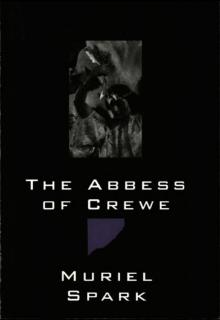 The Abbess of Crewe: A Modern Morality Tale
The Abbess of Crewe: A Modern Morality Tale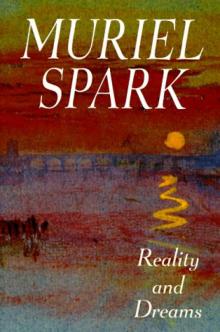 Reality and Dreams
Reality and Dreams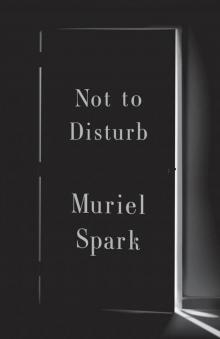 Not to Disturb
Not to Disturb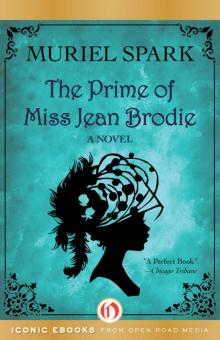 The Prime of Miss Jean Brodie
The Prime of Miss Jean Brodie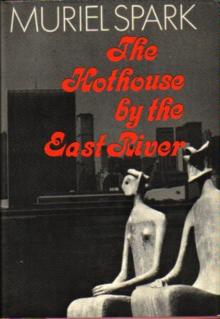 The Hothouse by the East River
The Hothouse by the East River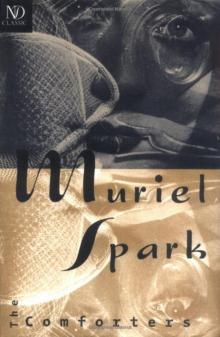 The Comforters
The Comforters (1958) Robinson
(1958) Robinson Unknown
Unknown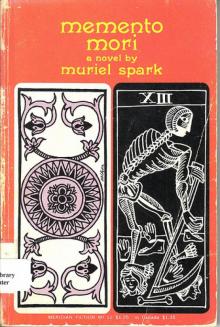 Memento Mori
Memento Mori The Finishing School
The Finishing School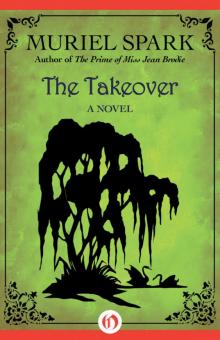 The Takeover
The Takeover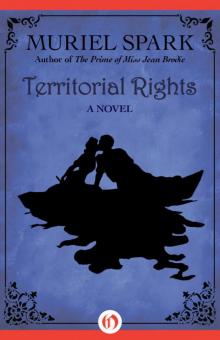 Territorial Rights
Territorial Rights The Complete Short Stories
The Complete Short Stories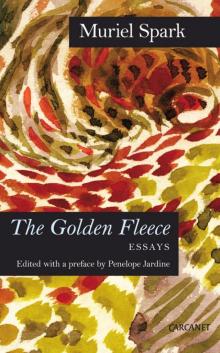 The Golden Fleece: Essays
The Golden Fleece: Essays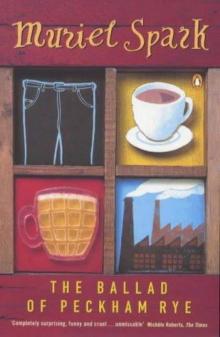 The Ballad of Peckham Rye
The Ballad of Peckham Rye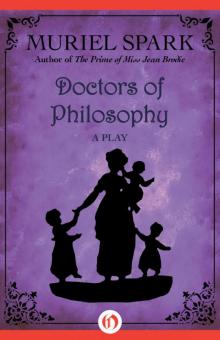 Doctors of Philosophy: A Play
Doctors of Philosophy: A Play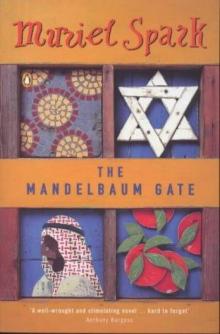 The Mandelbaum Gate
The Mandelbaum Gate Loitering With Intent
Loitering With Intent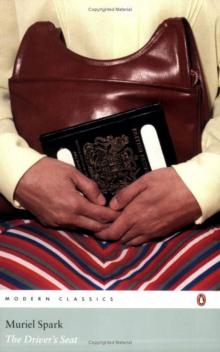 The Driver's Seat
The Driver's Seat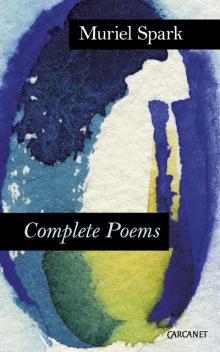 Complete Poems: Muriel Spark
Complete Poems: Muriel Spark Symposium
Symposium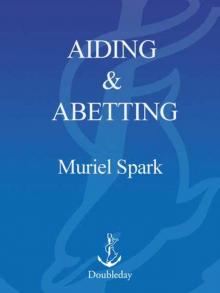 Aiding and Abetting
Aiding and Abetting The Golden Fleece
The Golden Fleece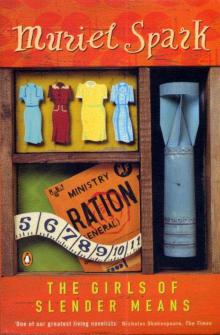 The Girls of Slender Means
The Girls of Slender Means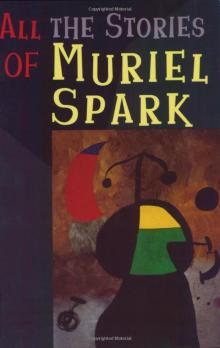 Alice Long’s Dachshunds
Alice Long’s Dachshunds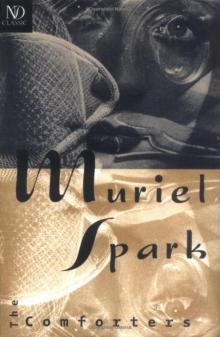 (1954) The Comforters
(1954) The Comforters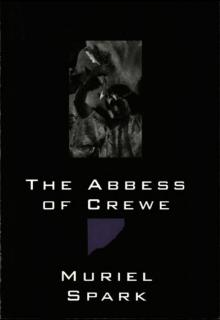 The Abbess of Crewe
The Abbess of Crewe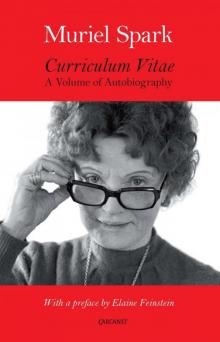 Curriculum Vitae
Curriculum Vitae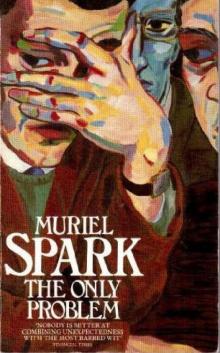 The Only Problem
The Only Problem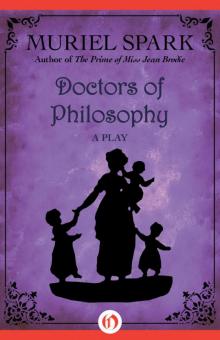 Doctors of Philosophy
Doctors of Philosophy